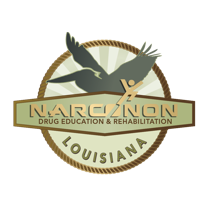Extra-Curricular
 Apparently parents should not rely on schools to effectively teach drug education. In fact, in some school yards, extra-curricular classes on how to raid the family medicine cabinet are taught by other students with home assignments that can lead to overdose.
Apparently parents should not rely on schools to effectively teach drug education. In fact, in some school yards, extra-curricular classes on how to raid the family medicine cabinet are taught by other students with home assignments that can lead to overdose.
Where should kids learn that drugs are bad? They cannot turn to television – MTV says they are OK. What about the WEB? Not likely – it is the key place to get information on simple ways to make methamphetamine, how to cook crack cocaine and pharmacy on-line shopping.
How about the place where past generations learned right from wrong as children – the parents? The fact that parents really do have an effect on their kids when it comes to drugs is rarely mentioned in prevention literature, yet research shows that with pot smoking at least, parents DO have an effect on their kids. It is not a novel idea and should not take a genius or millions of dollars in studies to determine that to a great degree, this generation of parents has lost control when it comes to moral education.
With drug education, parents need to take control NOW. Families should make drug abuse the topic of discussion and staying clean a contingency of having privileges. If they don’t, they will find that college fund going towards addiction treatment.
Following is a quote from an article regarding our schools’ role in providing drug education and prevention from an article in JOIN TOGETHER
“In April 2006, Join Together and Communities Online, with funding from the Gift of the Magi Foundation, conducted a survey of kindergarten through twelfth-grade educators in the U.S.”
The survey’s goals were to learn how drug and alcohol education is actually taught, identify barriers teachers face in teaching prevention, and identify the types of training, support, and materials educators need to improve the effectiveness of their alcohol and drug use prevention efforts.
A national advisory committee of experts in education met several times to discuss the survey results and formulate recommendations on how we can move forward to help delay, reduce, and prevent drug and alcohol use among children and adolescents.
Based on the findings of our survey and other research, we conclude that schools should not be relied on as the primary element in the country’s efforts to prevent the early initiation and consequences of alcohol and drug use.”
